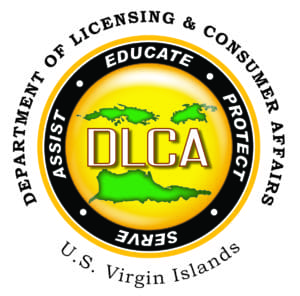
Commissioner Richard T. Evangelista of the Department of Licensing and Consumer Affairs received a call from someone stating that he was the winner of $1.8 million dollars from the Publishing Clearance House, and to collect his prize, he is to meet someone at the St. Thomas airport. He was also advised to purchase $850 worth of Amazon gift cards and provide the gift card number and its pin number to the scam caller to pay for the taxes on the prize prior to picking up the prize. If you receive a similar call, this is a scam. Hang up or simply do not respond.
Crooks use clever schemes to defraud millions of people every year. They often combine new technology with old tricks to get people to send money or give out personal information. The following are six tips to help the public spot PCH scams:
- Publishing Clearance House Doesn’t Email or Call Its Big Winners
If you receive an email, a telephone call or a bulk mail letter saying that you’ve won a big prize from Publishing Clearance House, it’s a scam. According to the Publishing Clearance House website:
“All PCH prizes of $500 or greater are awarded by either certified or express letter or in person by our famous Prize Patrol at our option.”
So, if you receive a prize notification by any other method than certified mail or an in-person award, you know you are being scammed.
- You Never Have to Pay to Receive a Legitimate Publishing Clearance House Win
Scammers extort money from you in exchange for a promise of a prize that never materializes. The truth is that you never, ever have to pay to receive a sweepstakes prize from Publishers Clearing House or any other company.
- Don’t Give Out Confidential Information When You Enter
You don’t have to give Publishers Clearing House your address, bank account number, driver’s license number, or any other confidential information when you first enter.
You may have to fill out an affidavit to verify eligibility if you win, but not when you enter. If the entry form is asking for this kind of personal information, it’s a sign you are on a spoofed website.
- A Check Doesn’t Mean You’ve Won
Scammers sometimes make it appear that you’re not “really” paying for your prize by handing over a check and asking you to send back some of the money. After all, they’re providing the funds, right? Wrong. Those checks aren’t legitimate, and you’ll be left holding the bill.
- Do Your Research Before You Respond
There are some steps that you can take to verify your prize wins. Some of them include that you never, ever pay money to receive a prize. Use Google to search for similar win notifications that have been reported to consumer organizations as scams.
- Verify Your Wins with Publishers Clearing House Directly
If you have checked the steps above and you’re still not sure if your win notice is legitimate, you can contact Publishing Clearance House directly to ask them to verify your prize. Do not use the telephone numbers or email addresses included in your win notice; scammers fake that information to trick their victims.
Publishers Clearing House works diligently to fight scams, both by working with law enforcement officials and through public education. For more tips on avoid Publishers Clearing House scams, visit the Contest Integrity section of the Publishing Clearance House website at www.PCH.com.
Have You Been Scammed?
If someone has already sent money or purchased a gift card and provided both the card number and pin number to a PCH con artist, DLCA encourages that person to report the call to the Virgin Islands Police Department’s Economic Crime Bureau. The victim will also need to be extra cautious in the future because scammers consider people who have been scammed to be easy prey, and there is a good chance that person will be targeted again.
Sign up for free scam alerts from the Federal Trade Commission (FTC) at www.ftc.gov/scams. Get the latest tips and advice about scams sent right to your inbox.
To report a scam, contact the Department of Licensing and Consumer Affairs hotlines at 771-SCAM (7226) or 727-SCAM (7226) or via email at consumerawareness@dlca.vi.gov. People may also report scams at www.ftc.gov/complaint.





